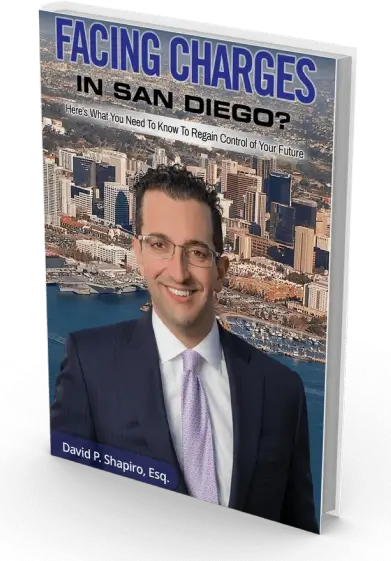What to Expect if You’ve Been Accused of Sexual Assault in California: Step-by-Step
Facing an accusation of sexual assault is life-altering, regardless of whether you are innocent, guilty, or somewhere in between. This comprehensive guide explains what to expect from the first accusation through to potential trial outcomes and emphasizes the importance of protecting your rights and future with the help of an experienced criminal defense attorney.
Initial Sexual Assault Accusation: What to Expect
The journey begins with the initial accusation, which can come in many forms. You might find out from:
- Your accuser directly
- Social media
- Law enforcement
- Child Protective Services
The emotions triggered—fear, shame, embarrassment—can be overwhelming and unforgettable, whether or not you committed the alleged act.
What to Do When Accused
So, how are you going to handle this? What are you going to do?
- Stay Silent: Do not talk to anyone about the accusation—not your spouse, law enforcement, the accuser, or on social media.
- Get Legal Representation: Contact a qualified criminal defense attorney immediately.
- Avoid Public Statements: Refuting, denying, or admitting anything on social media or in public can harm your case.
Beware of Controlled Calls in Sexual Assault Cases
One of the most damaging forms of evidence in these cases is a controlled call, also known as a pretext call. These calls may seem casual or friendly but are often traps set by law enforcement. Here’s how they typically work:
- Your accuser or someone you trust calls and asks questions like, “Why did you do that to me that night?” or “You knew I was intoxicated.”
- These calls are recorded, and your responses can be used as evidence against you.
Even if you don’t realize the police are involved, the controlled call can be the most incriminating piece of evidence at trial. Always redirect any such conversation by saying, “Please speak to my attorney.”
What to Do When Contacted by Law Enforcement
At some point, after these accusations come to light, you’re going to be contacted by law enforcement. Cops are going to want to talk to you. They may place a business card on your door, they may come to your work, they may call your spouse, trying to find you.
You must maintain your composure during this time, and equally, if not more important than maintaining your composure, is remembering what you’re supposed to do and what you’re not supposed to do. You’re not supposed to talk.
Don’t give life to an investigation that may be on life support. Your words, your statements, and the evidence against you could be used against you to support the accusations, regardless of your guilt or innocence. You must protect your freedom and future by keeping your mouth closed. Tell the cops you want to cooperate, here’s my lawyer’s number. They’ll be more than happy to talk to you. Let your attorney know right away.
Social Media’s Impact on Sexual Assault Cases
Social media and digital evidence can make or break your case. Here’s what you need to know:
- You Can’t Win on Social Media: No amount of posts, replies, or public support will help you in court.
- Avoid Digital Mistakes: Even seemingly harmless conversations can be used as evidence. A friend’s message like, “Why did you do that to her?”, if unanswered, can be argued as an “adoptive admission” by the prosecution.
How to Handle Digital Accusations
- If you receive a message questioning your actions, respond with, “Talk to my lawyer. I plan to plead not guilty.”
- Refrain from engaging in discussions or attempting to clear your name online.
You’re not going to win these types of cases on social media, none of that. You can only lose, and it’s essential to understand that whatever you might have done, whether it is true or not with what you’re accused of, you’ve got to make sure you don’t make matters worse by what you’re putting out there on the internet. You’re putting yourself in places and situations that they might not otherwise be able to prove.
The Significance of the Preliminary Hearing
Many people focus solely on the trial stage, but the preliminary hearing is just as critical. You don’t get the trial without a preliminary hearing in California in most cases. And a preliminary hearing, other than a trial, is the most important aspect of your criminal case.
At a preliminary hearing, your accuser may take the witness stand and be subjected to cross-examination questioning by your lawyer. Your lawyer can identify any inaccuracies and get testimony that will hold the witness or witnesses to their statements made under oath during the preliminary hearing, should the case go to trial.
While it may be difficult to get cases or charges dismissed at a preliminary hearing, especially with serious allegations like sexual assault, having the right attorney and solid evidence can make a difference. If you’ve taken the appropriate steps we discussed earlier in this video to avoid worsening your situation, you have a chance to use the preliminary hearing effectively. This could help set up your case for success, whether that means negotiating for a favorable outcome in the short term or preparing for a potential trial in the long term.
Common Mistakes to Avoid
Now, a lot of times, people make a crucial mistake – they wait until after the preliminary hearing to up the ante as it relates to the quality of who’s standing by them with and for them in court. “Oh, man, this preliminary hearing was a disaster. I got to start taking this case seriously.”
You should have been taking this case seriously weeks before the police even got to you, but you can’t do anything about it, right? So what are you going to do? Can’t control what you can’t control, but you can control what you can control, and that’s who’s representing you moving forward. So you want a law firm that’s got that type of high-level experience in a case like yours.
Why Early Legal Representation Matters in Sexual Assault Cases
Securing a top-tier, experienced criminal defense attorney as early as possible can make a significant difference. Law enforcement and prosecutors are typically well-prepared by the time they reach out to you.
You’re not going to go hire a DUI lawyer when you’re facing 25 to life for a violent rape or sexual assault. You’re not going to want to spend a significant amount of money for someone’s first shot at a multiple-victim child molestation case. Why would you do that?
You have to understand the significance of this process. Each step has a process, each step has a purpose. The district attorney knows what they’re doing, the cops know what they’re doing, and you’re going to go in there blindly, not thinking about the case, not worried about the case, not focused on the case until it’s too late. Why?
Then you’re sitting in a situation, you’re in a jail cell, you’re in a prison cell in protective custody, facing a significant amount of time, potentially the rest of your life in prison. This is not a place where anyone wants to be, especially a place that you might have been able to prevent by getting ahead of the situation early, protecting your freedom, protecting your future, and getting the right defense team on your side, early, and often.
By acting quickly, you can:
- Halt the flow of potentially damaging information
- Control the narrative
- Prepare for each stage of the legal process, from the investigation to trial
Accusations of sexual assault are severe and carry lifelong consequences. Delaying action can result in irreversible damage to your defense.
Facing Sexual Assault Allegations? Contact David P. Shapiro Criminal Defense Attorneys
If you or someone you love is facing criminal charges in California, swift action is imperative. The penalties can be life altering and long lasting. Give us a call today to set up a case evaluation with one of our attorneys and learn how to best protect your freedom and future. Too often, we see clients who “wait and see,” unsure of the legal landscape ahead, only for charges to escalate. They then find themselves backpedaling into a bad defense and an even worse lawyer. Don’t let that happen to you. Protect your freedom. Protect your future. Know your rights.
The contents of this article and blog are meant for informational and marketing purposes only and do not constitute legal advice. Viewing and/or use of the blog does not form an attorney-client relationship. No statements in this post are a guarantee, warranty, or prediction of a particular result in your case.









